Central African Republic
Wearing a pink and yellow shirt, Ngade Guy Jocelyn cannot go about without his paddles.
The disbaled man lives in Cité Atib area, located south from Bagui, the capital of the Central African Republic.
It has been a few day since the father has been forced to move about his town on a pirogue.
The Oubangui river overflowed following heavy rainfall. He found himself trapped in the flooded areas.
"If I had been living in a developed country, people like me would be entirely supported by the authorities given the situation," he says.
"But here I am, my children and I now live in water. We sleep and wake up to a flooded home. It is so exhausting to go through this with no help. We really want the government to solve this issue."
Residents have had to live in the Sapéké 2 area, a wetland, since 2016.
At the time, authorities invoked public interest to relocate the inhabitants pending the building of a bridge in the neighbourhood.
But they have denounced a lack of assistance.
The minister for Humanitarian action insists; all is done to mitigate the effects of the floods.
"You've seen in, in the capital we've experienced less flooding. It is thanks to the works on the pipes that have been carried out. We started works here because we are [upstream], Virginie Baikoua explains.
"Water that has been drained will then be evacuated towards the areas downstream and we will try to build pipes there so that water won't cover lands once again. So, how to direct the Oubangui river waters away from these neighbourhoods once it leaves its bed."
Works on pipes in the capital have worsened floods dowstream though.
As of now, thousands of residents have to do on their own as state help is slow to come.
Fears of water-borne disease such as cholera have been mounting.
Those who can afford to leave have deserted the flooded areas.
Only the very poor have remained inside houses at risk of collapse.




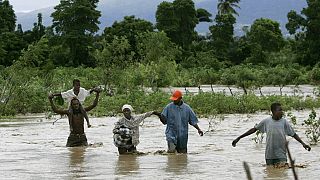
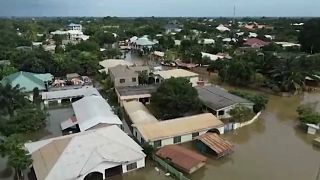
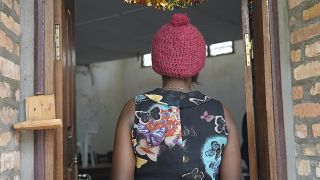

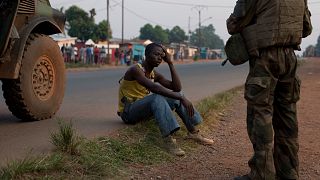

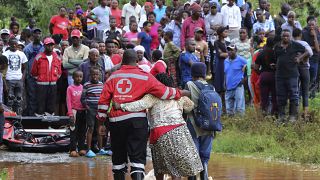

01:13
More rain expected in Kenya where weeks of floods have left scores dead
00:50
Kenya: 44 people die due to flooding
01:02
Pics of the day: April 25, 2024
01:11
Kenya floods: Nairobi residents grapple with aftermath
Go to video
Climate change is bringing malaria to new areas
01:40
Nairobi residents grapple with floods aftermath